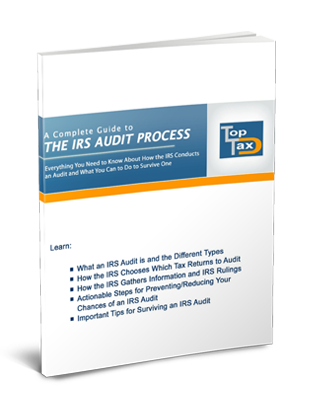Even the IRS understands that a person may be the innocent victim of a spouse’s improper activities regarding a joint tax return. Unreported income and improper deductions or credits by one spouse may put the innocent spouse at risk of paying additional tax, interest and penalties. Details of your circumstances can help you establish that it would be unfair for you to be held responsible for the understated tax and any penalties or interest.
If you have been victimized by a current or former spouse, the IRS offers you the opportunity to ask for innocent spouse relief. Top Tax Defenders has 27 years of experience working with IRS and knows how to present the application and proof required to support an innocent spouse relief application.
What is Innocent Spouse Relief?
Innocent Spouse Relief is a provision by the IRS that allows one spouse to be relieved from the responsibility of paying taxes, interest, and penalties if their partner improperly reported items or omitted items on their joint tax return. Here are some common questions people often have about Innocent Spouse Relief.
Eligibility Requirement for Innocent Spouse Relief
Who qualifies for Innocent Spouse Relief? To
qualify for Innocent Spouse Relief, you must meet several conditions:
- The return you filed must have been a joint tax return.
- The joint return included an understated tax.
- The understated tax was due to unreported income or incorrect deductions, credit or tax basis.
- It would be unfair, under all the facts and circumstances, to hold you responsible for the understated tax.
- You filed a joint return with an error attributable solely to your spouse, you were unaware of the error, and it would be unfair to hold you responsible for the resulting tax under the circumstances.
What types of errors qualify for Innocent Spouse Relief? Errors may include unreported income, incorrect deductions, or improper credits claimed by your spouse.
What if I didn’t sign the joint tax return? If you didn’t sign the joint return, you might argue that you are not liable because you didn’t consent to the joint filing, which could be a separate issue from Innocent Spouse Relief.
Application Process for Innocent Spouse Relief
How do I apply for Innocent Spouse Relief? You need to
file Form 8857, Request for Innocent Spouse Relief, with the IRS.
Is there a time limit for applying for Innocent Spouse Relief? Generally, you must
file Form 8857 within two years after the IRS first attempted to collect the tax from you.
Other Considerations
What happens after I file for Innocent Spouse Relief? The IRS will review your request, which includes notifying your spouse (or ex-spouse), who has the right to respond. The IRS will then decide whether to grant relief.
Can I apply for Innocent Spouse Relief if I am still married? Yes, you can apply whether you are still married, separated, or divorced.
Does applying for Innocent Spouse Relief affect my spouse? Yes, your spouse (or ex-spouse) will be notified and has the opportunity to participate in the process. This can potentially affect their tax liability.
What if my request for Innocent Spouse Relief is denied? If denied, you have the right to appeal the decision with the IRS Office of Appeals or take the case to Tax Court.
Can Innocent Spouse Relief affect my credit score? While the relief itself doesn't directly affect your credit score, resolving tax debts can improve your financial standing and potentially your credit score over time.
Does Innocent Spouse Relief cover state taxes? Innocent Spouse Relief applies to federal taxes. State tax laws vary, and you would need to check with your state tax agency for similar relief options.
Can I apply for Innocent Spouse Relief for multiple tax years? Yes, you can request relief for more than one tax year by indicating each year on Form 8857.
Additional Relief Options
What other types of relief are available besides Innocent Spouse Relief? The IRS offers other relief options, such as Separation of Liability Relief and Equitable Relief, depending on the circumstances of your case. You may also receive partial innocent spouse relief.
For example, just because you were aware that your joint tax return included an erroneous item does not preclude you from receiving partial innocent spouse relief. For example, you and your spouse filed a joint tax return in which your spouse’s income was understated by $10,000. You later discover that the actual understated income was $50,000. If you can prove you were unaware of the additional $40,000 in income, the IRS may grant you innocent spouse relief on the tax, penalties and interest due on the $40,000.
Can I qualify for more than one type of relief? Yes, it is possible to qualify for multiple types of relief, and you should request all types that you believe apply to your situation. Working with
an experienced IRS tax expert will help you know if your case qualifies for additional types of relief.
These questions cover the most common concerns and provide a comprehensive understanding of Innocent Spouse Relief, its application process, and its implications. For specific cases, it is advisable to consult with a tax professional or attorney.
>>Click Here to Learn if Innocent Spouse Relief is Right for You
Don't Do It Alone - Get Professional Help
Top Tax Defenders team of experts will help you prepare your presentation of the facts and circumstances in support of your request for relief and your lack of knowledge of the actions of your spouse concerning the joint tax return.
Top Tax Defenders has the experience and knowledge to help you with your request for innocent spouse relief, including:
- Over 27 years of experience in IRS tax relief
- A dedicated team of tax professionals in your corner
Don't wait and suffer unnecessarily. Take time today to schedule a free consultation with our team and we can help you explore your options.
>>Click Here to Read Real-Life Success Stories from Our Clients







